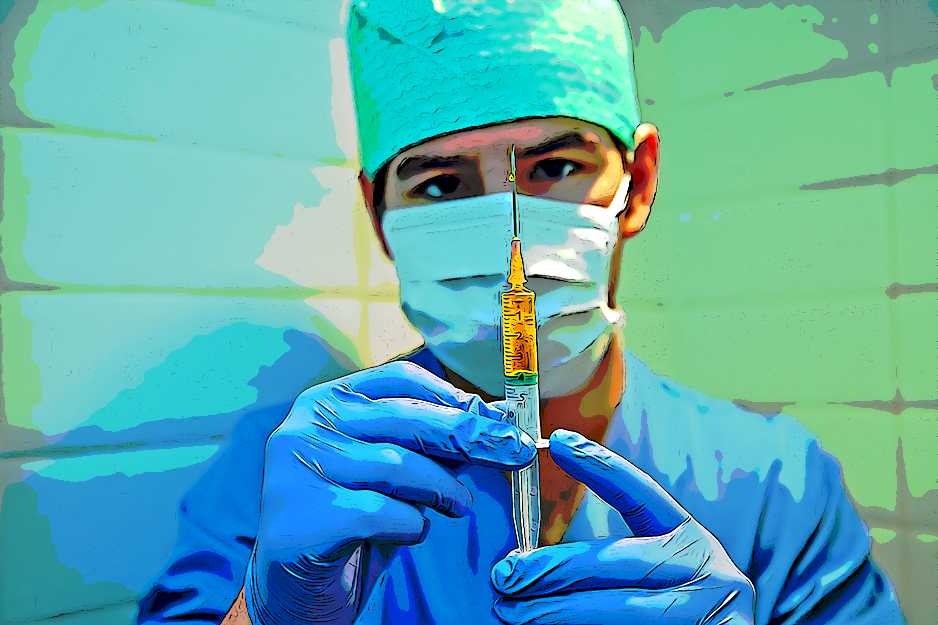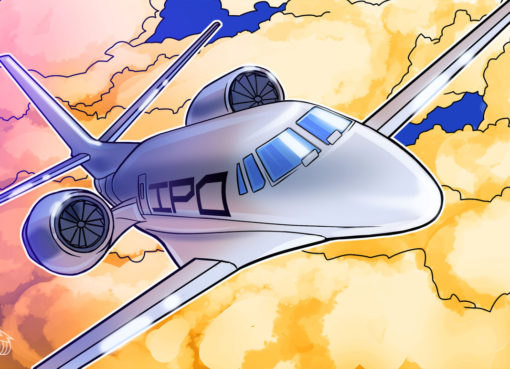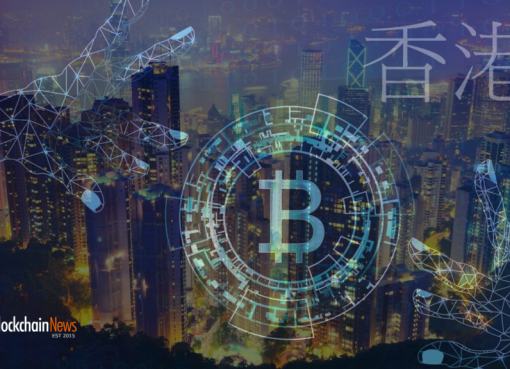This is the second article in a special Forkast.News series on blockchain, Covid-19 and the future of healthcare. To learn more about this series, please see its prologue.
——————————————————————————
A new year, three new vaccines and the prospects for air travel should be looking up. The future should be brighter soon — but it’s unlikely. The grim legacy of 2020, reinforced already in 2021, with more than 100 million total cases to date, and the United States surpassing 400,000 deaths from Covid-19. Much of Europe is attempting tighter lockdowns, amid concerns about two new strains that are approximately 70% more infectious, plus the discovery of another South African mutant. The new year has started as the old one ended, with mask-wearing, social distancing, testing and tracking at scale remaining critical in the battle against the virus.
The euphoria over the new vaccines has been superseded by a dose of reality about the availability of and time to roll out the vaccinations. It’s clear that the scale of the pandemic is set to get worse before it gets better. It all means that the eagerly awaited resumption in regular air travel is unlikely to happen any time soon.
For those who must travel, it is already the norm for most countries to demand that travellers take a Covid-19 test and present their certification before flight departure or entry to another country via a land-border crossing.
Demand for this pre-departure service is high, and in many cases very expensive. It can also lead to counterfeit reports being used. The availability of fake certificates has in turn fast-tracked the development of verified digital health certificates at break-neck speed.
In the face of this, blockchain has the power to revolutionize management of Covid-19. The concept of authentic, encrypted and digitized Covid vaccination certificates is becoming possible with the integration of blockchain into testing and tracking — and many other aspects of patient healthcare. Such verified certification can cut check-in times, reduce queues at the gate, and speed up dispersal at the destination – all factors that lower the chances of contracting the virus, and getting safely to your destination.
Testing, testing
Rapid and accurate diagnosis of the virus plays perhaps the most crucial role in controlling the spread of Covid-19. The quicker the diagnosis, the faster the individual can be quarantined, thereby eliminating the likelihood of community transmission. The current standard method for Covid-19 detection is the reverse transcription polymerase chain reaction (RT-PCR) method.
While testing with PCR offers high detection sensitivity, the technique is both expensive and delicate, requiring complex equipment that can only carry out a set number of tests per day, and operators with fastidious scientific technique. The turnaround time to a result is 6 to 8 hours. At present, with such a huge backlog of people in need of testing, that turnaround time can stretch out to seven days.
Alternative antigen testing, and in particular “loop-mediated isothermal amplification” (LAMP), is a candidate being used in addition to PCR. It’s significantly cheaper and the turnaround time is only 30 minutes. The techniques are similar in how they “find the virus” within a sample, but LAMP uses newer and simpler technology. The problem, however, is that LAMP has lower sensitivity to PCR, so may result in a higher number of false negatives.
Given that different governments have all differed in their handling of Covid-19 with regard to mandates on lockdowns, social-distancing, mask-wearing, and testing per capita, it is no surprise that different countries immigration controls demand different pre-departure tests, e.g. antigen, PCR, LAMP or antibody tests, each with different speed and sensitivity. It is critical that tests, wherever they are taken, are reliable and repeatable. Tests taken in the U.K. or the U.S. need to have equivalent and comparative readouts to those in the Philippines, India or China.
Pathology laboratories worldwide have been caught offering fraudulent health certificates. French officials broke up an alleged forgery ring that was selling false test certificates at Paris’s Charles de Gaulle Airport, demanding US$180 to US$360 (EUR150 to EUR300) for the digital certificates showing a negative result.
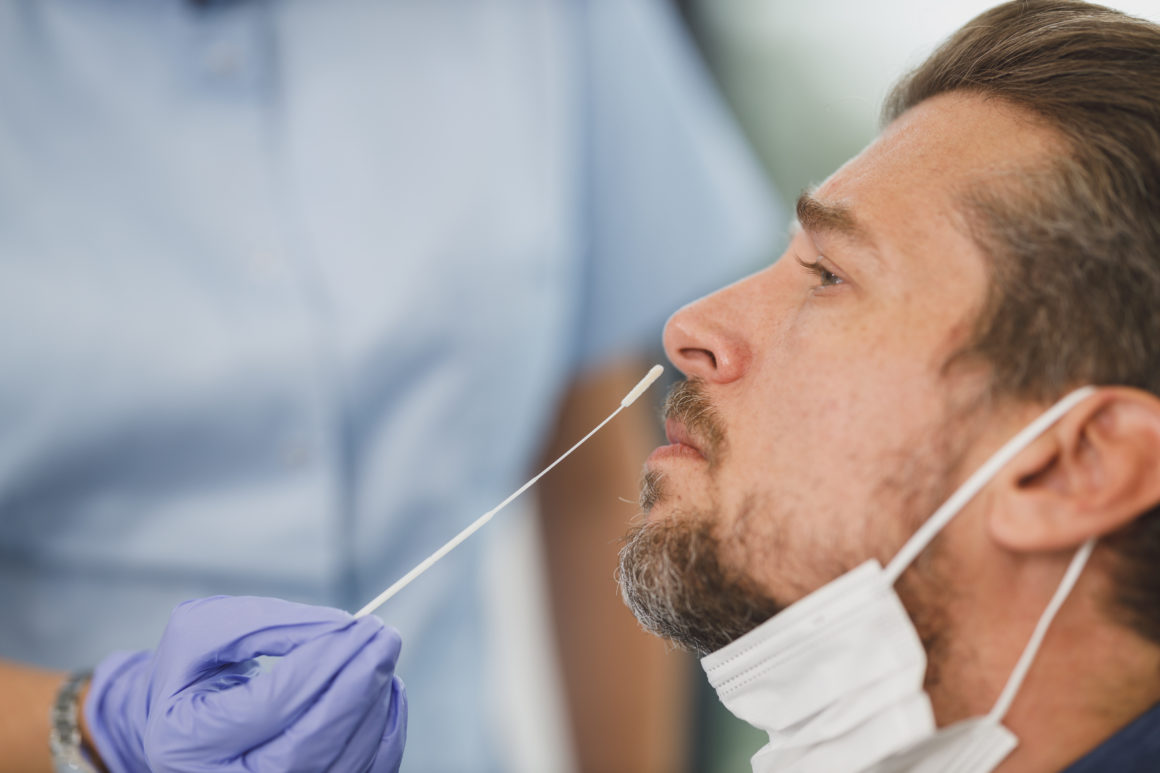
Image: Direct Media
However, as test-result protocols for travel become more high-tech, it’s less likely that fakes will work. An example of this is Hawaii’s “Safe Travels” program, requiring visitors to pre-register in their online testing program, use an approved testing facility, and upload results to a digital portal.
At this early stage, deeper scientific knowledge is required to fully characterize Covid-19 — its ability to infect individuals more than once, and the immunological characteristics or contagiousness of even asymptomatic carriers. “BioPassports” that digitally, legitimately and securely prove an individual’s current Covid status are being launched, and will also encompass “proof-of-vaccination status” as the roll-out continues globally.
Tracking and tracing
Covid-19 status is currently shared in two forms: first, with the patient via a phone call or text message from the doctor or testing site; or, second, in a patient medical record. Neither of these provides a clear way for an individual to prove their results to a third-party, such as an airline.
Testing and tracking initiatives are popping up all over the place, backed by tech giants such as Microsoft and Evernym. Evernym is the firm that initiated the self-sovereign identity (SSI) platform that empowers privacy. The Covid Credentials Initiative (CCI) was launched in April, using digital identity to help stop the spread of Covid-19.
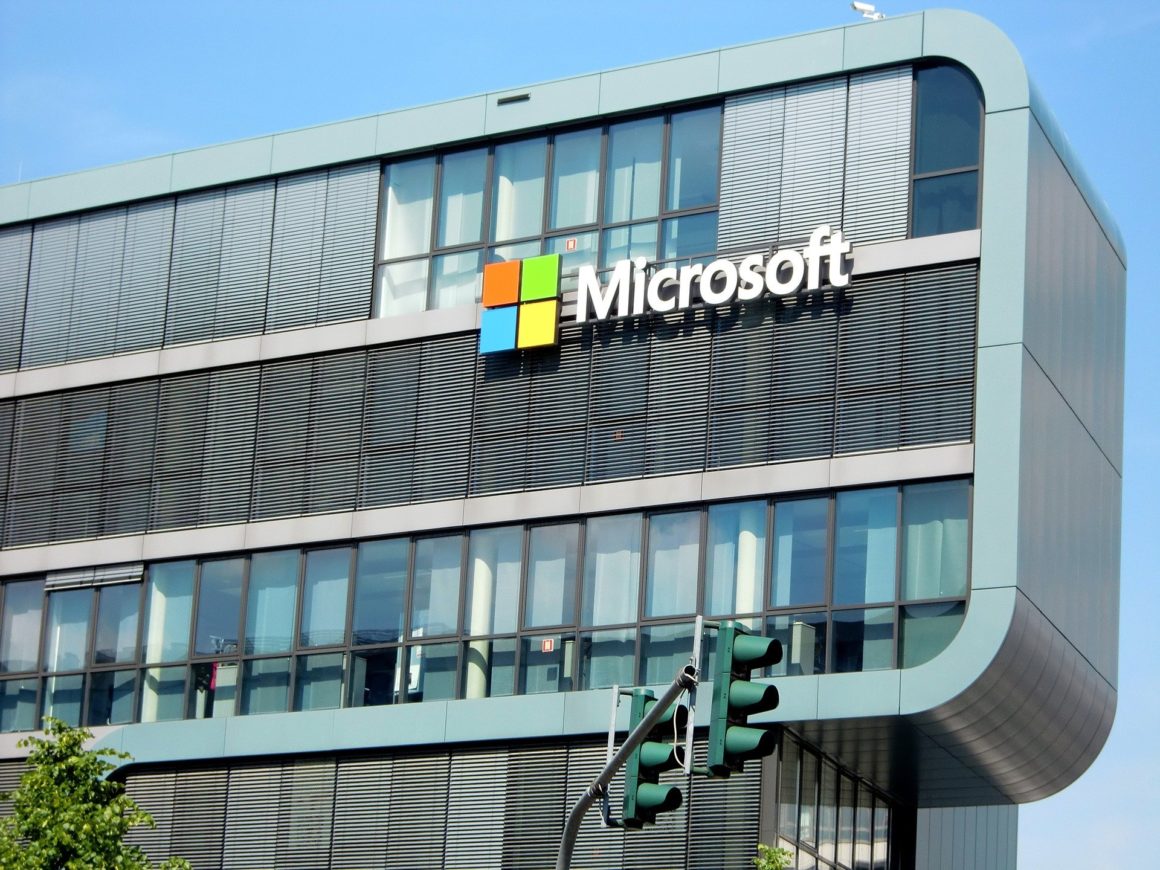
The CCI supports projects that use privacy-preserving “Verifiable Credentials” to mitigate the spread of Covid-19. Whether it’s a Covid report or vaccine certificate or any other sensitive data, the issuer packages up the credential and cryptographically signs it to seal the data it contains. The issuer then passes this to the subject, or holder, who can then share it with the receiver of the credential, the verifier, as needed. At that point, the receiver is able to use cryptography to check the seal and the validity of the issuer.
Verifiable credentials are privacy-preserving because the issuer and verifier, or receiver, do not form “handshake” with each other. The information does not pass directly. The credentials offer an innovative new format that provides and gives control to people information about their Covid-19 status. They can then choose if and when to have it verified by a receiver, or a relying party in any particular situation, such as at a port of arrival.
Not all apps are created equal
Many governments have developed phone apps to track and trace their citizens’ movements, and time spent in close proximity to known Covid-positive cases. The idea of using mobile phones and Bluetooth technology to trace the spread of Covid-19 was first implemented in Singapore, where the Singaporean Ministry of Health and Government Technology Agency designed and introduced the TraceTogether app in March 2020.
These apps search for other app users, log the date, time, Bluetooth signal strength and proximity to another phone, and will notify you if you have spent around 15 to 30 minutes in proximity to another person who has notified the app that they have tested positive for Covid-19. But just how that data is shared differs greatly across different jurisdictions and app technologies.
Privacy is a huge concern for potential users, not least because of the ramifications of being in close contact and testing positive. The Australian “COVIDSafe” app uses the Singapore platform technology, which is built using the principle of a centralized application.
Hong Kong has recently launched a similar contact tracing app called “Leave Home Safe,” also using a centralized application. Via the app, personal data can be provided to the Centre for Health Protection for contact tracing and any mandatory quarantine or hospital demands. This, plus a lack of trust in the government, may well scare off users.
A lack of transparency as well as concerns about efficacy and privacy have also been reflected in the lack of uptake of Australia’s COVIDSafe app. It has been downloaded by only around seven million citizens, or about 25% of the population. And that’s for a country where the only consequence of testing positive is 14 days home quarantine.
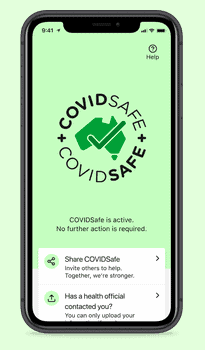
Image: COVIDSafe
However, the Estonian Covid app, “HOIA,” was specifically designed differently, and based on the core principle of privacy, choosing to use a decentralized privacy-preserving proximity tracing protocol, called DP-3T. Regardless, the app has only been downloaded by around 145,000 people, approximately 10% of the population
New Zealand, a country that has dedicated itself to Covid-19 eradication and is the closest contender to near-achieving such a lofty goal through stringent border closures and lockdown procedures, has recorded a handful of cases this week. The NZ Covid-19 Tracer App reports approximately 50% of New Zealanders over age 18 have downloaded the app to their phones. According to the privacy statement, any information shared with the NZ Health Ministry via the Covid Tracer app cannot be shared with government agencies, unless they are directly involved in assisting with the public health response to Covid-19. Of particular note, “… data will not be used for enforcement purposes.”
As New Zealand logs fresh numbers of Covid-19 in the community after months of “thought-to-be-eradication,” the Auckland community is lining up for testing in record numbers per capita, to contribute to stamping out the virus.
This is the way that health data should be used and applied — based on reciprocal trust in our leaders, and them in us. This generates the greater good. And blockchain will support this greater goal.
Verified tracking and tracing, and shortly, community vaccination are fundamental to digging us all out of the black pit of Covid-19. There should be some light on the horizon in the near future.

